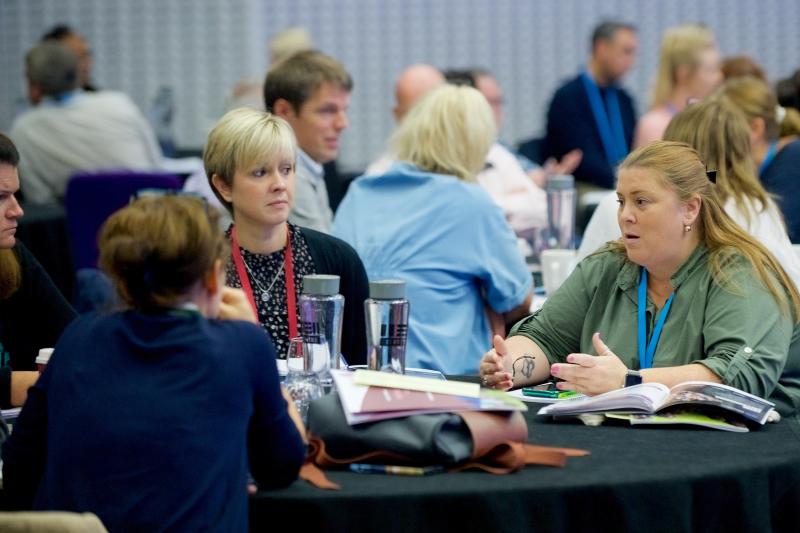Liz Worthen shares her key takeaways from the Delivering Statutory RSE conference and signposts useful resources.

Not surprisingly, one of the main topics for discussion on the part of both speakers and delegates at the Delivering Statutory RSE conference was sexual harassment.
Of course, child-on-child abuse isn’t a ‘new thing’ in schools: for example, the 2016 Women and Equalities Committee report into sexual harassment and sexual violence in schools found evidence that:
Ofsted's Review of sexual abuse in schools and colleges recommends that ‘schools, colleges and multi-agency partners act as though sexual harassment and online sexual abuse are happening, even when there are no specific reports’, and should work towards ‘developing a culture where all kinds of sexual harassment and online sexual abuse are recognised and addressed'.
What might this look like in practical terms? Here are some of my key conference takeaways.
Speakers at the conference kept coming back to this: our assumptions about what being male or female means influence so much about our attitudes and behaviour. When a girl is called a ‘slag’, what assumptions about women and sex are behind that comment? When a boy is laughed at for not wanting sexual attention, what assumptions about men and sex are behind that?
The short film Pink or Blue was a great thought-provoker for delegates. It's not necessarily something you'd share with all students, but it could be useful for stimulating reflection and discussion with staff.
Pink or Blue from DYPKA on Vimeo.
For suggestions as to how you might address this as a school, see challenging gender stereotypes: a whole-school approach. You might start with questions such as the following.
Several speakers raised the notion of a ‘relationships and behaviour policy’ rather than a ‘behaviour policy’. Are positive relationships at the heart of what you do? And what’s top of that behaviour agenda? Are staff ready to respond when they hear sexist comments or abuse? Or are they too busy policing pupil uniform?
Speaking of uniform, here’s a plea: can we stop fixating on the length of girls’ skirts, reinforcing the notion that they are responsible for the behaviour or responses of others, simply as a result of clothing choices? (For more on this, see the blog post School uniform: The gender debate.)
These talking points from the staff guidance element of our challenging harassment toolkit are a useful way to initiate discussion and start addressing values and beliefs in relation to harassment.
I think my biggest takeaway is that sexual harassment isn’t something that can get ‘fixed’ in a half hour training session for staff. It goes so much deeper. It’s about culture change, attitudes and beliefs, and positive relationships and sex education, as well as having robust reporting systems and ensuring that when incidents occur, they are taken seriously and dealt with appropriately. It's not just something for secondary schools and colleges to consider; young children need relationships education too.
Good PSHE is vital – including good sex education, which explores what sex is and why you might want to do it. We can't just tell pupils what's wrong and what they shouldn't do – they need to know what good is! (Jonny Hunt talked in his workshop about the notion of 'sexual citizenship'. If this is an area you're interested in, you might want to check out his book, Sex Ed for Grown-Ups: How to Talk to Children and Young People about Sex and Relationships.)